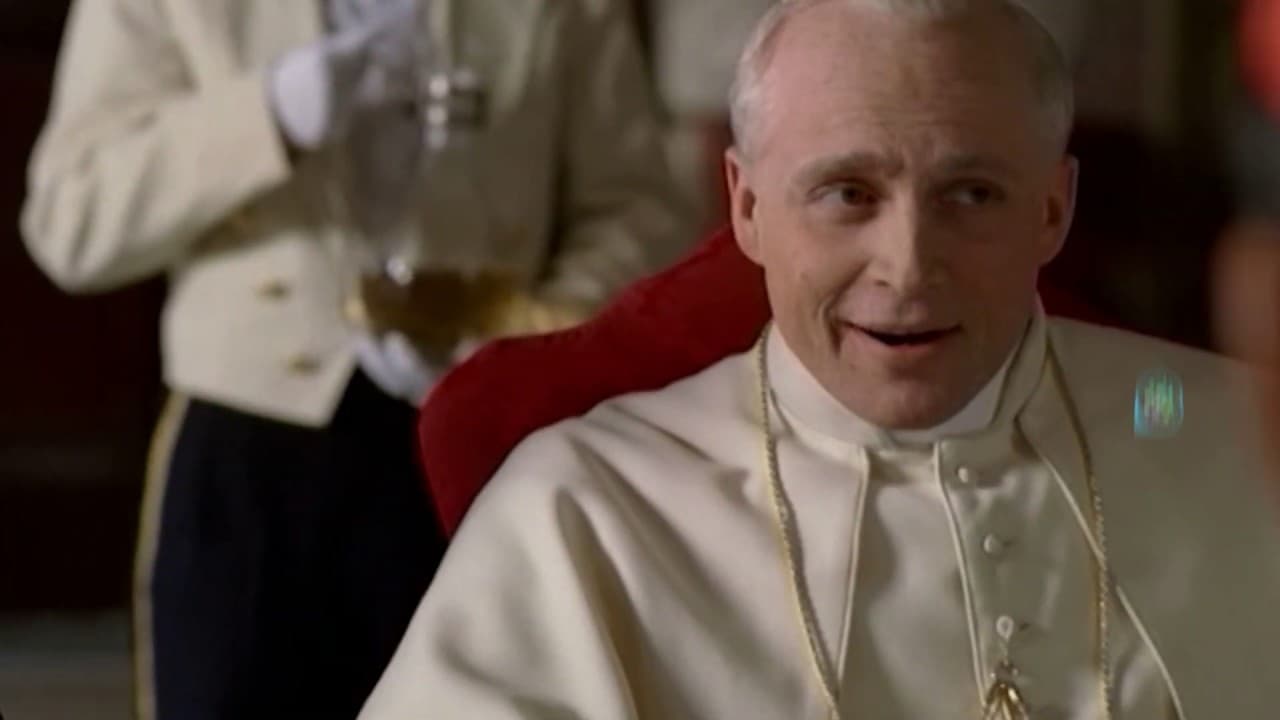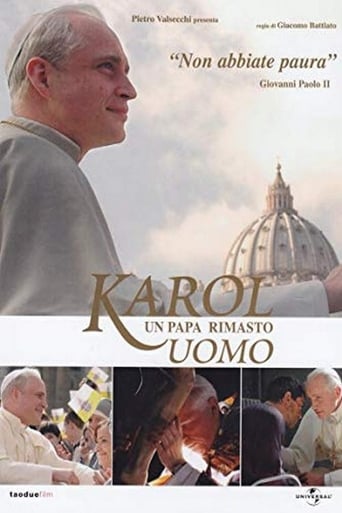

to critic this biopic is the first temptation for a not Romano-Catholic believer. but, maybe, the rain of stones to the director and actors is not exactly the wise choice. because it is not easy to imagine other solution to tell about a saint. the film is too sentimental and too sweet. a pious homage to a Pope suffocated by clichés and the status of impressive human institution. and to compare with the first part does more damages to this film. but... . it is a remember of well known events. it is a Catholic expression of respect and love for the most important European figure from the Church, in the second part of XX century. and, sure, it is a religious film. more than a biographic one. respecting the rules of the genre. so, it is so easy to critic it. but, in same measure, more important remains to respect a subjective adaptation of one of the most significant reign in Catholic Church from the last century.
... View MoreA real shame. Such important and complex figure as John Paul II deserves a good movie about him; unfortunately, this one did not come anywhere near that.Piotr Adamczyk gives his best efforts, but even the master violinist wouldn't give too impressive performance when given very poorly written concerto. Essentially, the movie jumps from one episode to another, being a collection of small pieces rather than a cohesive unity; in effect, this leaves the viewer increasingly bored as the movie progresses, as there is nothing really interesting here.But what hurts the movie the most is the ultimate polarization of characters. The Pope is always good, smiling, charismatic, wise, - put in any positive adjective and it will definitely fit in. The baddies are always cold and cynical. Such polarization gives the viewer the impression of watching an old 1910s silent western: with the Sheriff always cleanly shaven and wearing stainless white coat and the bad guys always bearded and wearing black. Of course, all the controversies concerning the Pope are absent: he is perfect human being, and so, becomes a cardboard cut-out rather than a live character, far from the complex, rich personality the Pope in reality was. In fact, the same can be said about virtually every character, with one notable exception.The ironic twist of the movie is that the only character that sticks to the viewer's mind is the infamous Mehmet Ali Agca: somehow, he is the only character in the movie that seems to be human, of flesh and bones. And the scene where he assembles his handgun and prepares for his mission is the high point of the entire movie: suddenly, some life is breathed into a lifeless parade of clichés and cardboard cut-outs. Sad. 2/10.
... View MoreI am Jewish but when I saw "Karol, the Pope" and especially the performance of Piotr Adamczyk, I thought this was Oscar performance. I lived in Los Angeles for many years and I think that this performance could NEVER get any nod from the 5,000 members of the Academy. Wrong topic, wrong religion, wrong nationality of the actor (Polish), etc. I am not politically correct right now, but that's what I think. His interpretation of the life of the Polish pope was exquisite, very emotional and just perfect. To show the Pope throughout the years, from the young man to the dying man, with all its humor, humaneness and big heart, was just unbelievable. I cried throughout the movie, which does not happen very often, because being a filmmaker I am very cynical. Have a nice day, Andre
... View Moreit is a very good movie and a moving one, but I think it is a very small movie for such a big pope. It would be interesting if in the DVD features, we could find some statistics about the quantity of travels, the quantity of people he met, the amount of speeches he gave, the influence he had on different churches, catholic and non catholic, etc.The movie stays short in the trips he made to America, Mexico, Chile and many other countries for specific reasons and church problems that were taking place in the catholic church. Hoe he renovated the moral sense and thoughts of many priests, and theologians, how he insisted in the universal call to holiness, his love for the blessed sacrament, the renovation of the religious life, the problems with the Society of Jesus, some bishops and catholic doctrine professors. The way he used to reunite philosophers, scientists, from around the whole world to discuss many items every year.I know it would be impossible to reunite 26 years in a 2 hour movie, but it is a very good try, to start with.
... View More